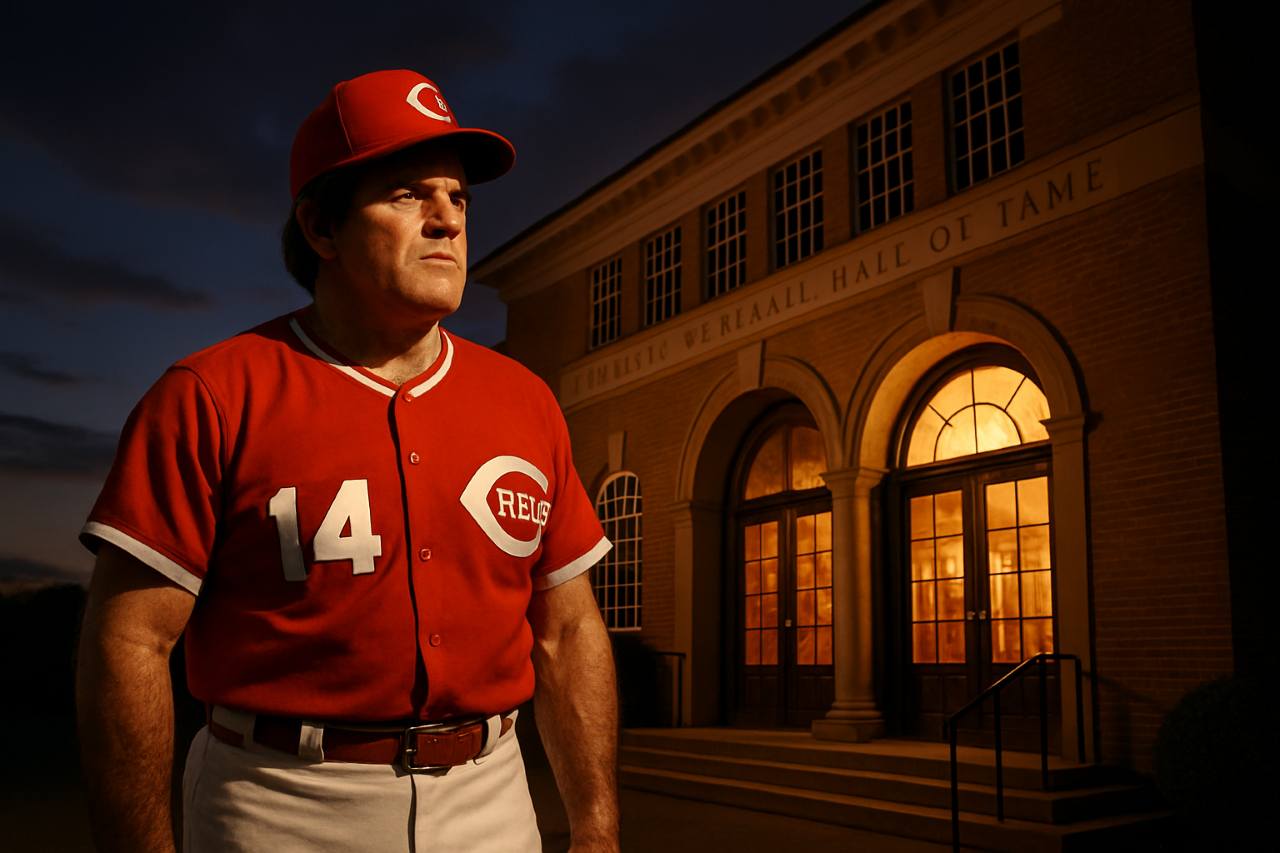
Pete Rose and the Hall of Fame: The Door Opens at Last. A Decision Decades in the Making.
For as long as I’ve followed baseball, Pete Rose’s name has been synonymous with both greatness and controversy. The all-time hits leader, “Charlie Hustle” himself, was the game’s most relentless competitor—and its most famous outcast. Now, in a move that’s as much about the passage of time as it is about forgiveness, Major League Baseball has finally made Rose eligible for the Hall of Fame, lifting a ban that outlived the man himself.
On May 13, 2025, MLB Commissioner Rob Manfred announced that Rose, along with “Shoeless” Joe Jackson and 15 others, would be removed from the league’s permanently ineligible list. The catch? The ban is only lifted posthumously. Rose, who died last September at age 83, will never see his own plaque in Cooperstown, but the debate over his legacy is about to enter a new—and perhaps final—chapter.
Why Now? The Policy Shift Explained
Manfred’s reasoning was as pragmatic as it was philosophical. “Once an individual has passed away, the purposes of Rule 21 have been served,” he wrote in a letter to Rose’s lawyer. “A person no longer with us cannot represent a threat to the integrity of the game.” In other words, a lifetime ban is just that—a punishment that ends with a life. The move also covers other infamous figures, most notably Jackson, whose own ban stemmed from the 1919 Black Sox scandal.
This change didn’t come out of nowhere. There’s been mounting pressure from fans, former players, and even politicians—President Donald Trump, for one, has been a vocal supporter of Rose’s posthumous pardon. But the timing, just before the Cincinnati Reds’ “Pete Rose Night,” feels like a nod to the city that never stopped loving its flawed hero.
The Numbers Never Lied
Let’s be clear: on the field, Rose’s credentials are unimpeachable. He holds the MLB records for hits (4,256), games played (3,562), and plate appearances (15,890). He was a 17-time All-Star, a three-time World Series champion, and the 1973 National League MVP. I remember watching old highlight reels—Rose barreling into Ray Fosse at the 1970 All-Star Game, sprinting to first on a walk, playing every inning like it was his last. He was the embodiment of hustle, and for generations of fans, the ultimate competitor.
The Scandal That Wouldn’t Die
But Rose’s story is also a cautionary tale. In 1989, after an investigation revealed he’d bet on games while managing the Reds, Rose agreed to a permanent ban from baseball. For 35 years, he was the sport’s most famous pariah, denied even the chance to appear on a Hall of Fame ballot. The ban was ironclad, and the Hall’s rules were clear: anyone on the ineligible list couldn’t be considered for induction.
Rose’s supporters argued that his on-field achievements should outweigh his off-field sins. His critics pointed to the Hall’s “character clause,” which asks voters to consider integrity and sportsmanship alongside statistics. The debate was endless, and often exhausting. I’ve heard Hall of Famers say, “If Pete Rose isn’t in, what’s the Hall for?” I’ve also heard others insist that the rules are the rules, and Rose broke the game’s most sacred one.
What Happens Next?
Now, with the ban lifted, Rose’s candidacy will be considered by the Hall’s Classic Baseball Era Committee, which next meets in December 2027. If 12 of 16 members vote for him, he’ll be inducted as part of the Class of 2028. It’s a process that’s as much about history as it is about healing. The Hall’s board chair, Jane Forbes Clark, put it simply: “Anyone removed from Baseball’s permanently ineligible list will become eligible for Hall of Fame consideration.”
But eligibility is not enshrinement. The same questions that haunted Rose in life will follow him in death. The committee will weigh not just his records, but his character, his gambling, and the other off-field controversies that dogged him—including tax evasion and allegations of statutory rape, which surfaced in court documents years after his playing days.
A Personal Reflection
I grew up in a house where baseball was religion, and Pete Rose was both saint and sinner. My father, a lifelong Reds fan, kept a Rose rookie card in a plastic sleeve—right next to his Ty Cobb. He’d say, “You can’t tell the story of baseball without Pete Rose.” Now, for the first time, the Hall of Fame has a chance to tell that story in full.
Whether Rose is ultimately inducted or not, this moment is about more than one man. It’s about how we remember greatness, how we reckon with failure, and how, sometimes, the passage of time can soften even the hardest lines.
